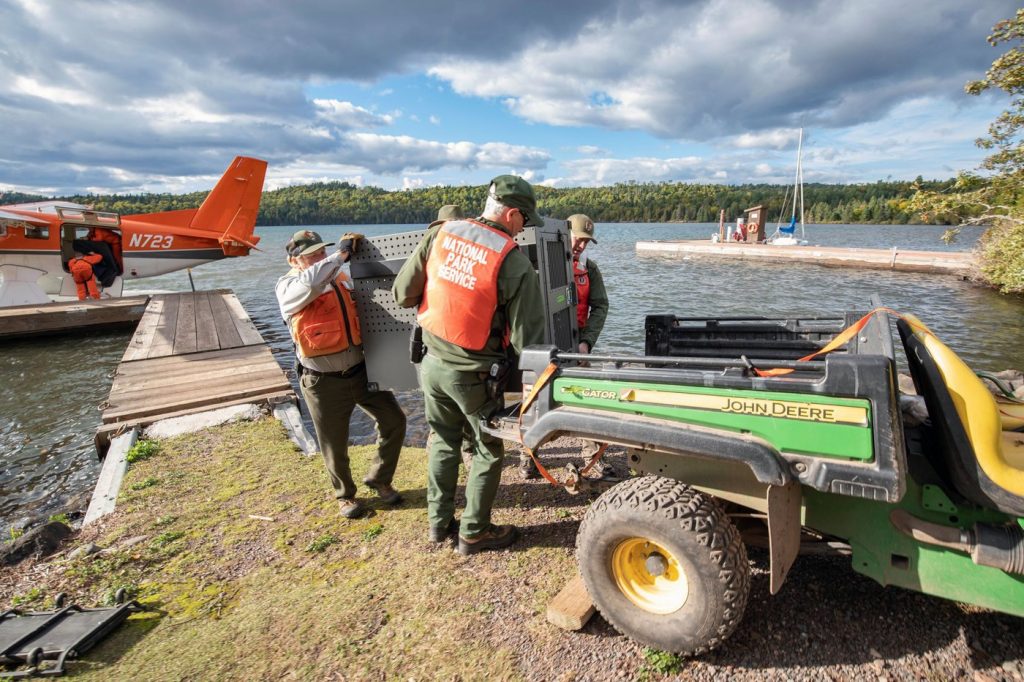A last-minute medical issue resulted in the grounding of researchers' annual wolf-moose survey on Isle Royale during the winter of 2024, highlighting ongoing challenges faced by scientists in counting these animals in the remote national park. Isle Royale, situated in western Lake Superior between Grand Marais, Minnesota, and Thunder Bay, Canada, spans 134,000 acres (54,200 hectares) and provides a rare opportunity for scientists to observe wolves and moose in their natural environment, largely unaffected by human intervention. Since 1958, researchers have conducted annual surveys to monitor the island’s wolf and moose populations.
This year, scientists from Michigan Tech University were scheduled to carry out a series of aerial surveys utilizing ski-planes for a seven-week period starting in January. Winter conditions, including snow and bare branches, typically facilitate better tracking from the air, but the island's lack of a land-based runway necessitates the use of ski-planes that can land on the island’s frozen harbors. Unfortunately, due to unforeseen circumstances, the researchers were unable to complete their aerial mission this winter. The annual report released on Tuesday lacks new population estimates, noting that the team could not take to the skies as their usual aviation resources were unexpectedly unavailable.
According to Michigan Tech spokesperson Hailey Hart, the pilot of the ski-plane faced a sudden medical issue that prevented him from flying, leaving the researchers without a suitable replacement. Hart described the situation as “very sudden” and expressed disappointment, indicating it was quite disheartening for the team.
This disruption is part of a larger trend, as researchers have encountered significant obstacles in three of the past five years while attempting to conduct the survey. The COVID-19 pandemic forced a cancellation of the survey in 2021, marking the first time since 1958 that no population counts took place. Furthermore, in February 2024, the survey had to be cut short due to unusually warm weather that rendered the ice around the island unsafe for ski-plane landings, ultimately leading to a suspension of the researchers' work.
Data gathered before the abrupt evacuation revealed that the wolf population on Isle Royale consisted of 30 individuals, a slight decrease from the previous year’s count of 31. Meanwhile, the moose population stood at 840, which reflects a 14% decline from 2023. Most of the recently released report focuses on observations made by a group of college students who visited the island in the summer of 2024. These students reported regular wolf sightings, witnessed a wolf chasing a moose, and discovered the remains of a wolf that had died approximately a decade earlier, prior to the National Park Service’s wolf relocation initiative that began in 2018.
Moreover, the students identified 115 moose remains, including 22 that are believed to have perished in 2024, with researchers estimating that wolves were responsible for the deaths of all but three of those moose. Despite the setbacks encountered this winter, Hart indicated that the team is planning to pursue another aerial survey next winter to continue contributing to the understanding of these animal populations.











